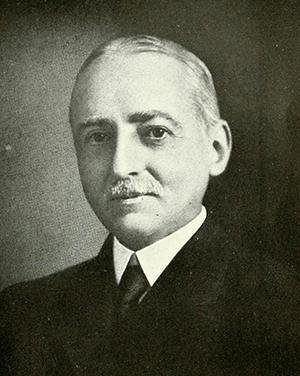1 Feb. 1860–14 Dec. 1946

Ernest Haywood, attorney, was born in Raleigh, the son of Edmund Burke and Lucy A. Williams Haywood. He attended Lovejoy's Academy in Raleigh, Horner and Graves Military Academy in Oxford, and The University of North Carolina, from which he was graduated with an A.B. degree in 1880. Haywood then entered the law school conducted in Greensboro by Robert P. Dick and John H. Dillard and was admitted to the bar in 1882.
Practicing in Raleigh, he specialized in commercial, insurance, corporation, and real estate law and was counsel to the defendants in the Hawkins and Sexton will cases. Haywood was one of the founders of the original North Carolina Bar Association in 1885 and one of the subscribers to its charter and bylaws. He was honorary vice-president of the U.S. Chief Justice Roger B. Taney National Memorial Foundation, a sponsor for the Robert E. Lee Memorial Foundation at Stratford Hall, Va., a national trustee of the Sons of the American Revolution, and a member of the Sons of Confederate Veterans. Haywood was deeply interested in local history and was the author of many articles published in Raleigh newspapers. In 1937, he made an all-air trip around the world and had been scheduled to return home from Europe on the Hindenberg but changed his plans shortly before his departure. A Democrat and a member of Christ Episcopal Church, he was buried in Oakwood Cemetery, Raleigh.